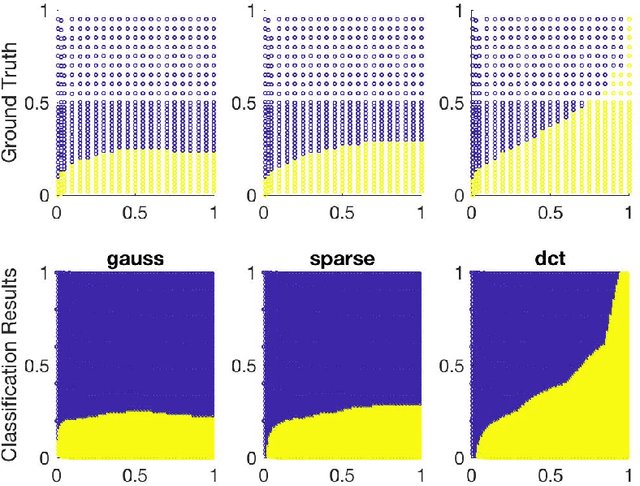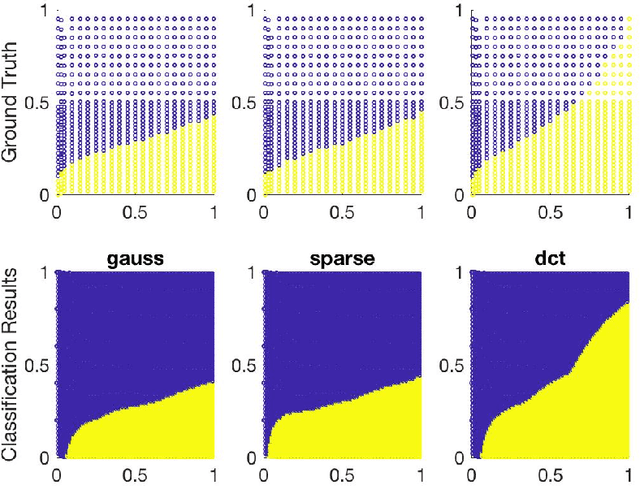Jesus A. De Loera
Data-driven Algorithm Selection and Parameter Tuning: Two Case studies in Optimization and Signal Processing
May 31, 2019



Abstract:Machine learning algorithms typically rely on optimization subroutines and are well-known to provide very effective outcomes for many types of problems. Here, we flip the reliance and ask the reverse question: can machine learning algorithms lead to more effective outcomes for optimization problems? Our goal is to train machine learning methods to automatically improve the performance of optimization and signal processing algorithms. As a proof of concept, we use our approach to improve two popular data processing subroutines in data science: stochastic gradient descent and greedy methods in compressed sensing. We provide experimental results that demonstrate the answer is ``yes'', machine learning algorithms do lead to more effective outcomes for optimization problems, and show the future potential for this research direction.
 Add to Chrome
Add to Chrome Add to Firefox
Add to Firefox Add to Edge
Add to Edge